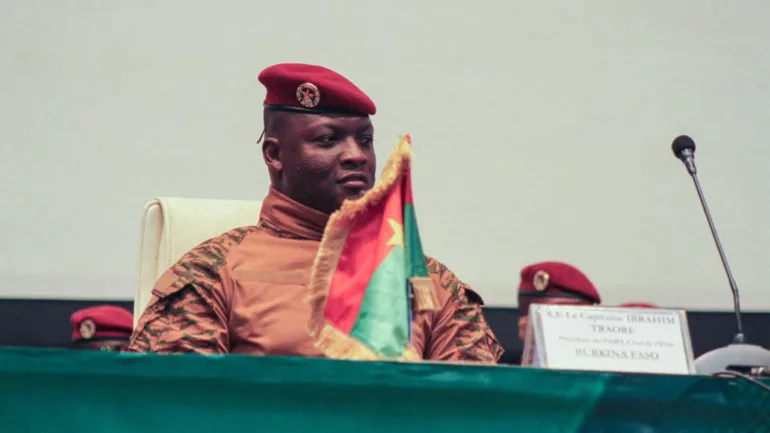Burkina Faso’s ruling military leader dismissed the country’s prime minister on Friday and dissolved the government, according to a presidential decree seen by AFP.
The sacked prime minister, Apollinaire Joachim Kyelem de Tambela, had served as the head of three successive governments, surviving each reshuffle. He was appointed premier in October 2022 following the coup that brought Captain Ibrahim Traoré to power. No official reason was provided for his dismissal.
“The prime minister’s official functions are terminated,” the decree stated, adding that members of the dissolved government would continue with their duties until a new government is formed.
Burkina Faso has experienced significant instability since the January 2022 coup in which Lieutenant-Colonel Paul-Henri Sandaogo Damiba seized power. Less than nine months later, Damiba was overthrown by Traoré, who now leads the junta. Damiba, who ousted elected president Roch Marc Christian Kaboré, is currently in exile in neighboring Togo.
Russia as a ‘better suited’ ally
The junta has made reclaiming national sovereignty a central priority and has frequently criticized Western powers, particularly France. In contrast, Burkina Faso has strengthened ties with fellow Sahel countries Mali and Niger, both of which are also under military rule following a series of coups since 2020.
In September 2023, the three countries formed the Alliance of Sahel States (AES), severing ties with France and pivoting towards Russia. Burkina Faso, a former French colony, has seen relations with Paris deteriorate since the 2022 coup. Last month, Foreign Minister Karamoko Jean-Marie Traoré stated that Burkina Faso’s growing cooperation with Russia was “better suited” to the country’s interests than its historic ties with France.
In addition to distancing themselves from France, Burkina Faso, Mali, and Niger announced in January that they were abandoning the Economic Community of West African States (ECOWAS), accusing the organization of being influenced by Paris.
Battling Jihadist violence
The three countries are grappling with widespread jihadist violence, which began in northern Mali in 2012 and spread to Niger and Burkina Faso by 2015. In Burkina Faso, the conflict has forced over two million people to flee their homes, and more than 26,000 people, including soldiers and civilians, have been killed since 2015, according to the monitoring group ACLED.
In response, Moscow has sent military instructors to Burkina Faso, as well as to other African nations, to assist in the fight against Islamist insurgents.
AFP


